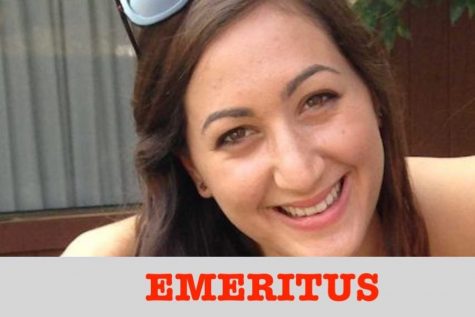Yom Hashoah: A mother’s tale of the Holocaust, told at the piano
June 3, 2011
Students watched as Mona Golabek played the piano passionately, moving as one with the music. Her eyes were closed and she played each note as if it were her last, with enthusiasm and devotion. Her hands flowed gracefully and fluidly across the keys.
She was telling her mother’s story.
On May 2, the Beit Midrash was arranged as though it was Town Hall, but instead of eyes darting around the room as people got up to speak, all eyes were glued to the woman at the grand piano, which was front and center.
Ms. Golabek, a Beverly Hills author and accomplished concert pianist, performed as part of the observance of Yom HaShoah, or Holocaust Remembrance Day.
The ceremony began with sophomores lighting six candles, one for each one of the million Jews killed in the Holocaust. Silence filled the Beit Midrash as everyone stood while Rabbi Sabo led the school in a chapter of Tehillim.
After the candlelighting, freshmen read poems they had written after reading Ms. Golabek’s book, The Children of Willesden Lane, in Ms. Nancy Sterman’s English class.
Once Ms. Golabek was introduced, she began telling her story in a combination of dramatic reading, acting and music by composers such as Chopin and Rachmaninoff.
“She presented her story in a very lively and effective manner,” said sophomore Danny Silberstein. “She was trying to get across a point and she did it in the best way possible. She made it entertaining, but not to the point where it was just too much fun. She made it very meaningful and I was very touched by it.”
Ms. Sterman, who organized the event, had assigned Ms. Golabek’s book about her mother’s story last summer. After she gave a brief intro, freshmen Sharona Sedighim, Joelle Edry, and Scotty Silver recited original poems.
After expressing how touched she was by the poems, Ms. Golabek began telling the story. She started off with one simple sentence: “My mother was amazing.”
Her mother, Lisa Jura, grew up in Nazi-occupied Vienna, just a teenager when World War II began. Her passion was playing the piano. However, her piano teacher could no longer give her lessons after new Austrian laws prohibited teaching a Jew. Soon after that, she was sent away from her family on the Kindertransport, a rescue mission that brought 10,000 Jewish youth to England between December 1938 and September 1939.
Ms. Golabek told of Lisa’s ups and downs in England, making sure not to reveal how the story ends, in order to encourage students to read her book. Sometimes she would speak of her mother’s feelings, and how she played the piano to express them. When her mother played piano in the story, Ms. Golabek would start playing piano herself.
“We always have to remember not only the tragedies but also the heroism of people who lived during this period and did so many unbelievable things, and I thought we learned a lot about that from this performance,” said Hebrew teacherMrs. Vered Hopenstand.
“It was well presented and I love music, so for me it was a combination of a well-told story about music, about feelings, about heroism, and about our history.”













